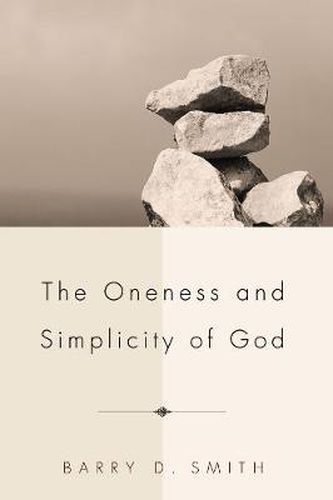Readings Newsletter
Become a Readings Member to make your shopping experience even easier.
Sign in or sign up for free!
You’re not far away from qualifying for FREE standard shipping within Australia
You’ve qualified for FREE standard shipping within Australia
The cart is loading…






This title is printed to order. This book may have been self-published. If so, we cannot guarantee the quality of the content. In the main most books will have gone through the editing process however some may not. We therefore suggest that you be aware of this before ordering this book. If in doubt check either the author or publisher’s details as we are unable to accept any returns unless they are faulty. Please contact us if you have any questions.
That YHWH is numerically one is foundational to the theology of the Hebrew Bible. Christian theologians historically have affirmed that there is a more fundamental type of oneness attributable to God. God is one not merely in the sense of being the only God, but also in the sense of being simple or non-composite, having no parts of any kind. In this way, God is said to be an absolute unity. After a consideration of all the evidence, Barry D. Smith reaches the conclusion that there is no basis for ascribing simplicity to God. The simplicity doctrine is not found in Scripture and the traditional arguments used to establish it are unconvincing. In addition, the recent defenses of the simplicity doctrine prompted by Alvin Plantinga’s work Does God Have a Nature? are unsuccessful. It should not be thought, however, that the rejection of divine simplicity means that by default God must be conceived as composite, not even as a perfect composite with maximally great, God-making properties. Rather, there is a third option: God should not be conceived as either simple or composite. The question of in which mode God has attributes or exemplifies properties should be set aside.
$9.00 standard shipping within Australia
FREE standard shipping within Australia for orders over $100.00
Express & International shipping calculated at checkout
Stock availability can be subject to change without notice. We recommend calling the shop or contacting our online team to check availability of low stock items. Please see our Shopping Online page for more details.
This title is printed to order. This book may have been self-published. If so, we cannot guarantee the quality of the content. In the main most books will have gone through the editing process however some may not. We therefore suggest that you be aware of this before ordering this book. If in doubt check either the author or publisher’s details as we are unable to accept any returns unless they are faulty. Please contact us if you have any questions.
That YHWH is numerically one is foundational to the theology of the Hebrew Bible. Christian theologians historically have affirmed that there is a more fundamental type of oneness attributable to God. God is one not merely in the sense of being the only God, but also in the sense of being simple or non-composite, having no parts of any kind. In this way, God is said to be an absolute unity. After a consideration of all the evidence, Barry D. Smith reaches the conclusion that there is no basis for ascribing simplicity to God. The simplicity doctrine is not found in Scripture and the traditional arguments used to establish it are unconvincing. In addition, the recent defenses of the simplicity doctrine prompted by Alvin Plantinga’s work Does God Have a Nature? are unsuccessful. It should not be thought, however, that the rejection of divine simplicity means that by default God must be conceived as composite, not even as a perfect composite with maximally great, God-making properties. Rather, there is a third option: God should not be conceived as either simple or composite. The question of in which mode God has attributes or exemplifies properties should be set aside.